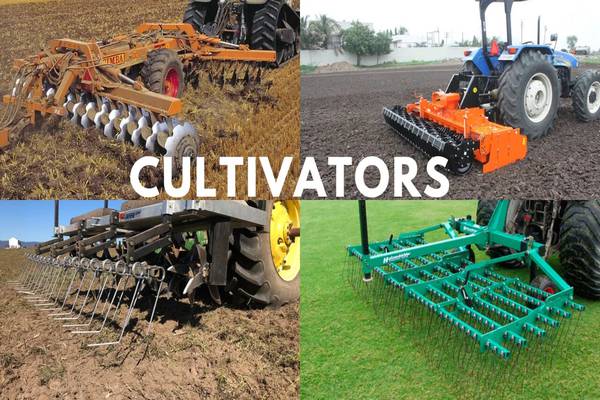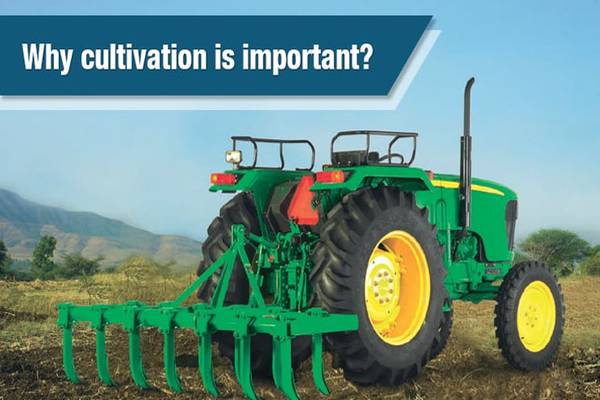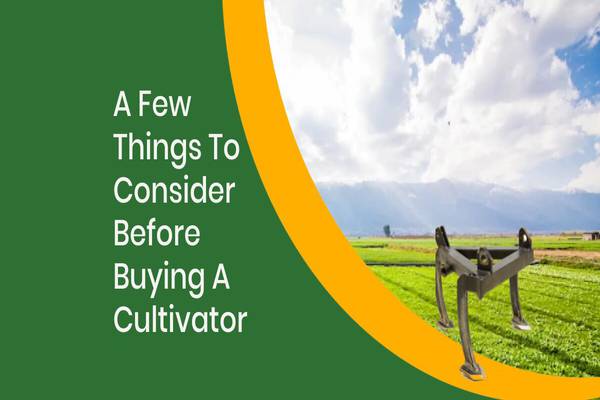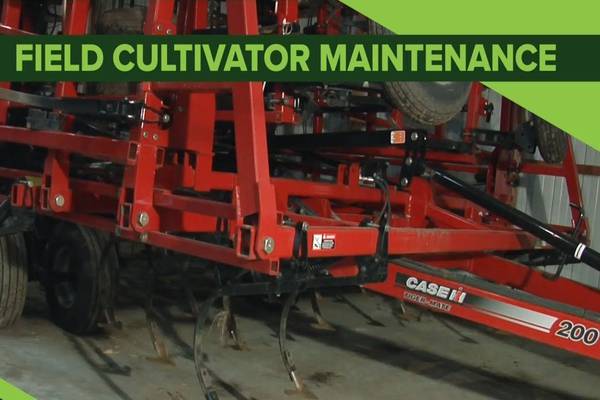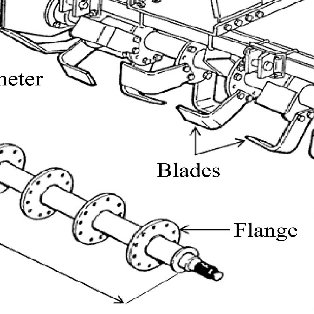Farm Cultivator
Drafted by: vijaychourey26@gmail.com
Are you a passionate farmer seeking ways to optimize your crop production and make your farm operations more efficient? Look no further! In this article, we'll dive into the world of cultivators, exploring their benefits, types, maintenance, and how they can revolutionize your agricultural practices.
Farm cultivators are versatile agricultural implements designed to prepare and cultivate the soil for planting crops. These machines play a crucial role in breaking up compacted soil, incorporating organic matter, and creating an optimal seedbed for improved germination and crop growth.
Different Types Of Cultivators
Handheld Cultivators
Handheld cultivators are compact and versatile tools ideal for small-scale gardening. They are particularly useful for breaking up soil in confined spaces and working around delicate plants.
Tine Cultivators
Tine cultivators feature multiple metal prongs or tines that dig into the soil, aerating and breaking it up. They are excellent for controlling weeds and improving soil structure.
Rotary Cultivators
Rotary tillers use rotating blades or tines to cultivate the soil, making them suitable for both primary and secondary tillage. They are versatile and ideal for small to medium-sized farms.. They are efficient at cutting through tough vegetation and are suitable for larger gardening areas.
Power Harrows
Power harrows are tractor-mounted cultivators equipped with rotating tines. They are capable of working through compacted soil and creating a fine seedbed. Power harrows consist of rotating tines that break up and level the soil while mixing in organic matter. They are particularly effective for seedbed preparation in orchards and vineyards.
Disc Harrows
Disc harrows consist of a series of concave metal discs that cut through and turn the soil. They are effective for incorporating crop residues and breaking up clods.
Spike Tooth Harrows
Spike tooth harrows have metal teeth that penetrate the soil, loosening it and uprooting weeds. They are often used after plowing to refine seedbeds.
Spring Tine Cultivators
Spring tine cultivators use flexible tines to cultivate the soil at varying depths. They are suitable for seedbed preparation and weed control.
Subsoilers
Subsoilers are designed to break up compacted soil layers deep beneath the surface, improving drainage and root penetration.
Strip Till Cultivators
Strip till cultivators create tilled strips for planting while leaving the interrows untilled. They help conserve soil moisture and reduce erosion.
Row Crop Cultivators
Row crop cultivators are specialized tools used to cultivate between rows of crops, targeting weeds and loosening the soil without damaging the plants.Row crop cultivators are equipped with tools that straddle crop rows, allowing for precise cultivation between plants.
Field Cultivators
Field cultivators have multiple shanks and sweeps for thorough soil tillage. They are commonly used for seedbed preparation in larger fields.
Vertical Tillage Cultivators
Vertical tillage cultivators cut through residue and mix soil without inverting it. They are suitable for minimal soil disturbance.
Ridge Cultivators
Ridge cultivators are designed for ridge tillage systems, creating raised planting beds. They are beneficial for managing excess moisture and enhancing root development.
Mulch Tillers
Mulch tillers incorporate crop residues and organic matter into the soil, improving soil structure and nutrient content.
No-Till Cultivators
No-till cultivators disturb the soil minimally, leaving crop residues on the surface. They help reduce erosion, improve water retention, and promote soil health.
Advantages Of Using Farm Cultivators
Enhanced Soil Structure: Farm cultivators improve soil aeration and drainage, promoting healthier root development.
Weed Control: Cultivating the soil disrupts weed growth and prevents competition with crops.
Time and Labor Savings: Mechanized cultivation reduces the need for manual labor and speeds up planting preparations.
Increased Crop Yields: Properly cultivated soil provides an ideal environment for seeds to germinate and plants to thrive.
Factors To Consider When Choosing A Farm Cultivator
Farm Size and Terrain
The size of your farm and the type of terrain will influence the choice of cultivator. Larger farms might require heavy-duty models, while smaller ones can benefit from compact cultivators.
Soil Type and Condition
Different soil types require different cultivation techniques. Clay soils might need deeper tillage, while sandy soils require careful management to prevent erosion.
Desired Depth and Tillage Level
Consider the depth and intensity of tillage required for your crops. Some cultivators offer adjustable settings to accommodate varying needs.
Budget and Investment
Cultivators come in a range of prices, so it's important to align your investment with your budget and expected returns.
Proper Maintenance Of Farm Cultivators
Cleaning and Storage
After each use, clean the cultivator of dirt, debris, and plant material. Store it in a dry, sheltered area to prevent rust and damage.
Lubrication and Greasing
Regularly lubricate moving parts and apply grease to fittings to minimize friction and wear.
Blade and Tine Inspection
Inspect blades and tines for signs of damage or wear. Replace or repair components as needed to maintain optimal performance.
Step-By-Step Guide To Using Cultivator
Preparing the Cultivator
Check oil and fuel levels, inspect blades, and adjust settings according to your crop and soil requirements.
Setting the Depth and Width
Adjust the cultivator's depth and width settings to match your cultivation goals and field conditions.
Operating the Cultivator
Engage the cultivator and drive at a consistent speed, allowing the blades to effectively break up the soil.
Post-Cultivation Practices
Inspect the cultivated area for uniformity and address any missed spots. Consider applying fertilizers or soil amendments as needed.
Common Misconceptions About Farm Cultivators
Misconception 1: Cultivation Is Unnecessary in Modern Agriculture
While modern farming employs various techniques, cultivation remains a vital practice for soil preparation and weed control.
Misconception 2: Cultivation Always Damages Soil Structure
Properly operated cultivators can improve soil structure, especially when followed by appropriate conservation practices.

